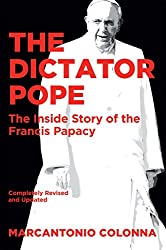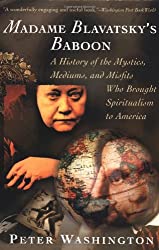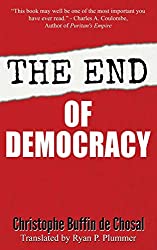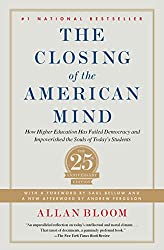
Unless I change my mind at the last minute, this site will be taking a new direction this weekend …
But before I begin in earnest, one little personal and fragmentary outburst.
Writing in his unusual Catholic masterpiece, Meditations on the Tarot, the incomparable Valentin Tomberg writes in ways that may scandalise the modern mind.
For example in referring to Christendom, there is a remarkable passage beginning on pg 85 that I have pondered for many years. I add some italics here and there to emphasise that which struck me deeply as I pondered …
The post of the Emperor is nevertheless not only that of the last (or, rather, the first) instance of sole legitimacy. It was also magical, if we understand by magic the action of correspondences between that which is below and that which is above.
It was the principle itself of authority from which all lesser authorities derived not only theit legitimacy but also their hold over the consciousness of the people.”
As I pondered this passage, I asked myself many times what does Valentin Tomberg mean by this single word: HOLD …?
Clearly he who knew that freedom was necessary for love and that love was the highest of all values, did not believe that the hold of the Emperor was one that compromised freedom …
To continue from the passage:
This is why royal crowns one after another lost their lustre and were eclipsed after the imperial crown was eclipsed. Monarchies are unable to exist for long without the Monarchy; kings cannot apportion the crown and sceptre of the Emperor among themselves and pose as emperors in their particular countries, because the shadow of the Emperor is always present.
And if in the past it was the Emperor who gave lustre to the royal crowns, it was later the shadow of the absent Emperor which obscured the royal crowns and, consequently, all the other crowns —those of dukes, princes, counts, etc.
A pyramid is not complete without its summit; hierarchy does not exist when it is incomplete. …
Europe is haunted by the shadow of the Emperor. One senses his absence just as vividly as in former times one sensed his presence. Because the emptiness of the wound speaks, that which wc miss knows how to make us sense it.
Valentin Tomberg believed that we are wounded by our loss of hierarchy and he continues …
Napoleon, eye-witness to the French Revolution, understood the direction which Europe had taken — the direction towards the complete destruction of hierarchy.
And he sensed the shadow of the Emperor. He knew what had to be restored in Europe, which was not the royal throne of France— because kings cannot exist for long without the Emperor— but rather the imperial throne of Europe.
So he decided to fill the gap himself.
He made himself Emperor and he made his brothers kings. But it was to the sword that he took recourse. Instead of ruling by the sceptre — the globe bearing the cross — he made the decision to rule by the sword.
But “all who take up the sword perish by the sword” (Matthew xxvi, 52).
Hitler also had the delirium of desire to occupy the empty place of the Emperor. He believed he could establish the “thousand-year empire” of tyranny by means of the sword. But again —”all those who take up the sword will perish by the sword”.
And later on, Tomberg continues:
The Middle Ages erected the cross above the nations, societies, aspirations and thoughts of Europe.
This was the epoch of obedience and faith —accompanied by every imaginable human abuse.
This was followed by an epoch where the dawn of hope made itself felt. Humanism, with its flourishing of Renaissance art, philosophy and science, was born under the sign of hope.
The sign of the pentagram began its ascent. It was then that opposition arose between the sacred pentagram of five wounds and the pentagram of the emancipated personality.
A purely humanistic art, science and magic had its development under the sign of the pentagram of hope in man, as opposed to the sign of the pentagram of hope in God, i.e. the sacred pentagram of the five wounds …
The impulse of freedom —of hope in emancipated man —has built up and demolished a great deal.
It has created a materialistic civilisation without parallel, but at the same time it has destroyed the hierarchical order— the order of spiritual obedience.
A series of religious, political and social revolutions has ensued.
But the hierarchical order is eternal and obedience is indispensable.
Now new hierarchical orders are beginning to be established, replacing obedience by tyranny and dictatorship.
For he who sows the wind shall reap the whirlwind (cf. Hosea, 7)—this is a truth that we are learning with so much suffering today.
The pentagram of hope in emancipated man has in former times sown the wind —and we and our contemporaries are now reaping the whirlwind.
Anonymous (Valentin Tomberg) Meditations on the Tarot, p. 118-19.

Dear Reader, this site is among other things, about the whirlwind of materialistic civilisation.
The horizontal deprived of the vertical.
That is to sway, stripped of the CROSS …
I want to say much more in time about the new false hierarchical orders.
But if you were to ask me my opinion as to the new false hierarchs of today, names like Hugh Hefner, Bill Gates and Rupert Murdoch would certainly spring to my mind … (Whether such springing to mind be justified or not).
Yes I hope to say much more about false hierarchy in time, but if anyone is interested in my opinion further on this matter, they can look here …
Foreword for Monarchy by Roger Buck
Buying Books at Amazon Through These Links Gives Us a Commission. This Supports Our Apostolate. Thank You if You Can Help Us Like This!













Comments
comments are currently closed
8 responses to “Napoleon (and Murdoch, Gates and Hefner?)”
[…] When Politzer asserted that the universe was not created out of nothingness, he was relying on the static universe model of the 19th century, and thinking that he was posing a scientific claim. However, the 20th century’s developing science and technology demolished primitive concepts such as the static universe model that laid the grounds for the materialists. Today, on the brink of the 21st century, modern physics has proved with many experiments, observations and calculations that the universe had a beginning and that it was created out of nothing with a big explosion. Related to this you can read: https://corjesusacratissimum.org/2011/02/napoleon-and-murdoch-gates-and-hefner/ […]
[…] Tomberg not only repeatedly endorses the fruit of this victory, but in his legal works particularly, indicates profound sympathies for many other aspects of the Nineteenth Century Ultramontane project. (Though this sympathy is very much present in his later Christian Hermetic works too – as I have indicated with some relevant quotations here). […]
I am not sure that Bill Gates belongs in the same category as Heffner and Murdcoh. The latter two have influenced the soul life (both public and private), extremely negatively, encouraging the sexual exploitation of women and the loss of any respect for truth.
Bill Gates and his wife are now using their enormous wealth for philanthropic ends through the Bill and Melinda gates Foundation.
Peter – good to hear your voice again!
I like what you say about influences on the soul life … and I appreciate your aspiration for justice here.
I did write the phrase “spring to my mind” and re-emphasised it “(Whether such springing to mind be justified or not)” – because I wanted to say that these are names that come to me …
I am not at all happy with what I know about Microsoft – but nor am I competent to be Bill Gates’ judge and jury.
And evidently sincere calls for justice and further reflection are definitely welcome here.
[…] The same theme will continue in the Hermetic works with an admittedly brief defense of the Crusades, as well as a lengthier advocacy of at least the essential structures of Christendom. (A further hint of what I mean by the latter can be found here). […]
[…] Tomberg not only repeatedly endorses the fruit of this victory, but in his legal works particularly, indicates profound sympathies for many other aspects of the Nineteenth Century Ultramontane project. (Though this sympathy is very much present in his later Christian Hermetic works too – as I have indicated with some relevant quotations here). […]
[…] and they have names attached to them – as I wrote in this post concerning Tomberg and Napoleon, and Murdoch, Gates and Hefner. Other false hierarchies are largely invisible, but they nevertheless work to […]
[…] I was haunted, haunted by the mysterious things that Valentin Tomberg was saying (here) about the tragic collapse of hierarchical structures in […]